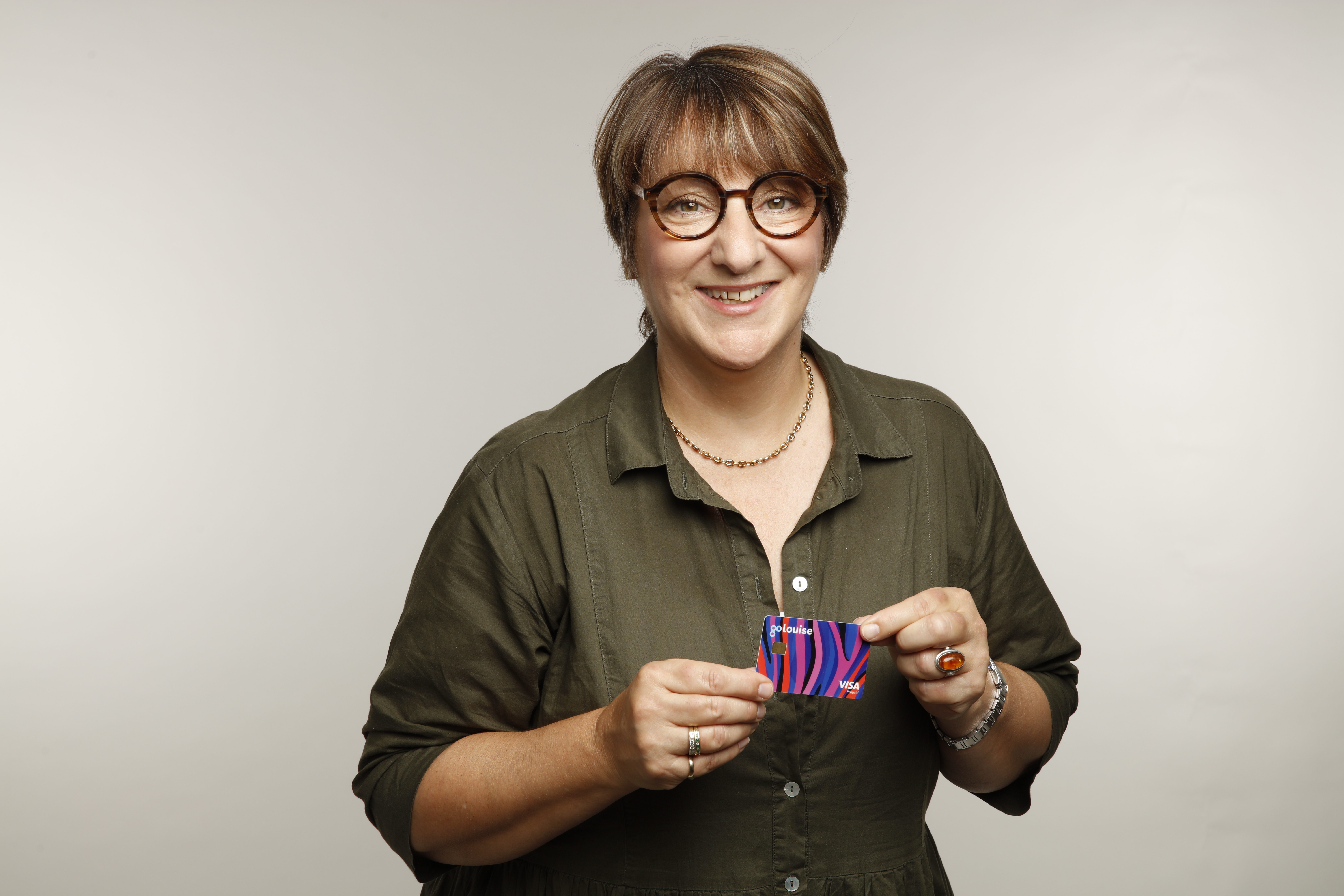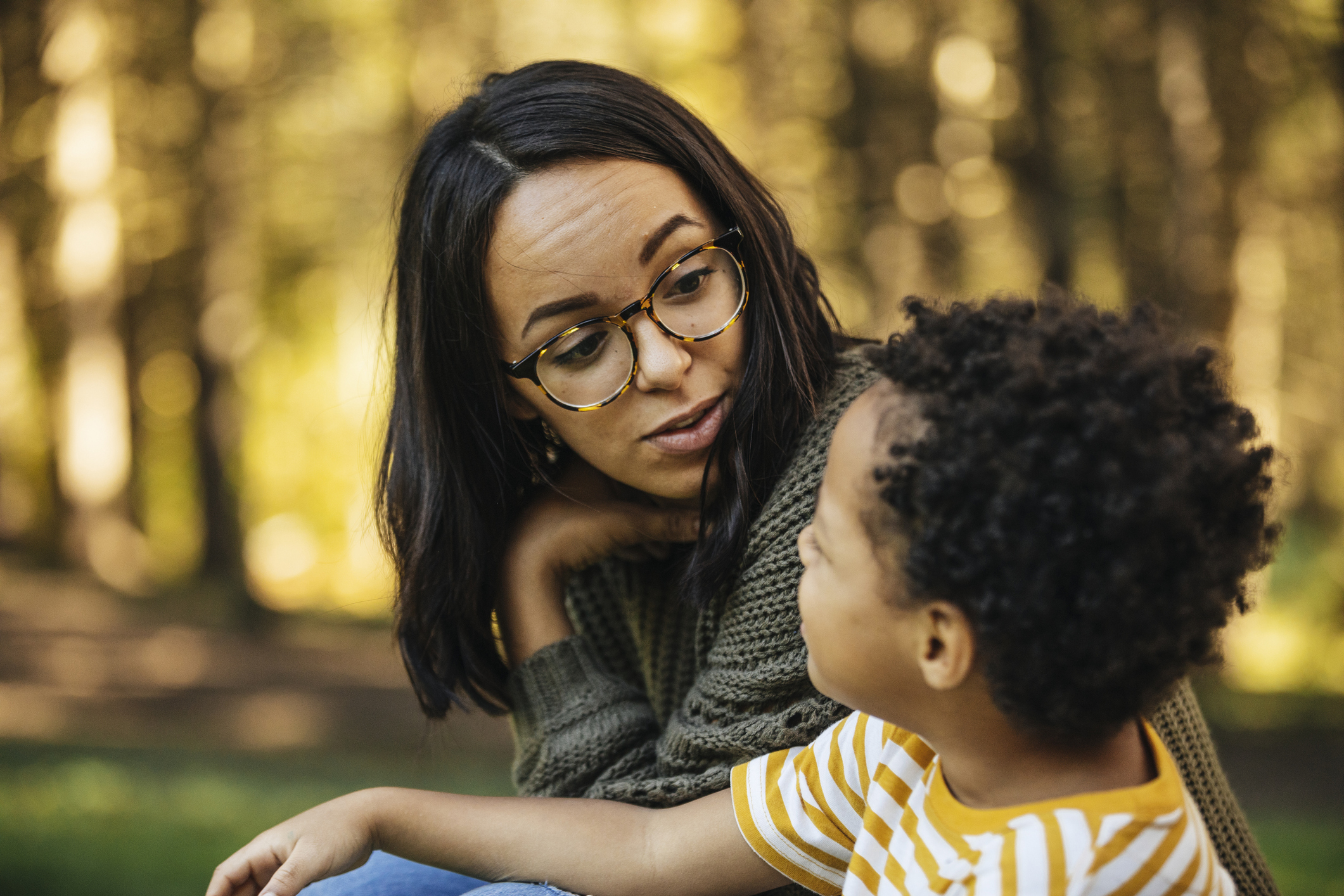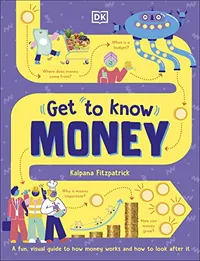We asked kids about money and the answers were just as ADORABLE as expected
Seriously, could they be any cuter?

Parenting advice, hot topics, best buys and family finance tips delivered straight to your inbox.
You are now subscribed
Your newsletter sign-up was successful
For millions of families, money worries have been made worse thanks to the cost of living crisis. When thinking about how to save money, we’re more conscious than ever about how much we’re spending, what we’re spending it on and how to ease the pressure on our finances.
While conversations about money can feel like they are for grown ups only, it can help to start talking to children about money from an early age to help them grow into financially confident adults. (If you're not sure where to start, these are the essential money lessons that all parents should teach their children). Incorporating some money games for kids into play time can also help grown their confidence with money.
Personal finance expert and author of children's book Get to Know Money, Kalpana Fitzpatrick, says: “Research shows children start forming money habits from as young as age seven and they will most likely pick these habits and learn from their parents. So, make sure you talk to your kids about money as young as possible. Starting young will make them confident and enable them to open up conversations around money that could help them avoid serious problems when it comes to managing their own finances when they are older.”
We teamed up with some mums to ask their kids questions about money to gauge their understanding of how money works and its value, and the answers were as cute as they were surprising!

Louise Hill is co-founder and COO of GoHenry - the prepaid debit card and financial education app designed to teach kids and teens how to be smart with money.
As a passionate advocate for financial education, Louise is a Trustee of The Centre for Financial Capability, Chair of MyBnk’s Financial Freedom Campaign, a mentor for Oxford University’s accelerator programme and a speaker at leading Exec MBA programmes across the UK. Louise is also a huge supporter of women in business, regularly speaking at events and offering her time as a mentor for female founders, start-ups, and scaling businesses in order to drive cultural change around female leadership.
1. Where does money come from?
“Work.” Ted, age 5
“Er, the bank.” Alba, age 9 (and a half!)
“Mum and Dad.” - Lorenzo, age 7
Parenting advice, hot topics, best buys and family finance tips delivered straight to your inbox.
“The bank or another money place. Or a factory that makes money.” - Ella, age 8
“Mummy and Daddy. Or from Nanna and Grandad. Or great grandad in a card. He gives me coins. They go in my moneybox.” - Mara, age 5
"From the bank. Or you can get it from a cash machine." - William, age 12
Expert view
Louise Hill from GoHenry says: "Well, you’re all right in many ways! It's super important for us to teach kids about where money comes from. This is a skill that they will definitely need as they grow up and start handling their own finances. When kids understand where money comes from, they can learn to appreciate its value and understand the importance of hard work and responsibility. It's a great step towards setting them up for a successful financial future!"
2. What are some things you can get with money?
“Food, pennies for new clothes.” - Ted, 5
“Football stuff.” - Alba, 9 and a half
“For things like food and toys and chocolate.” - Lorenzo, 7
“Food, home stuff, clothes, toys, because I like playing with toys. And last time I used my money, I got a crafting painting animals set with toilet rolls. So you can craft them.” - Ella, 8
“Food, toys, clothes.” - Mara, 5
"Stuff like food and clothes, but also a house and a car, and maybe days out or a holiday." - William, 12
Expert view
"Kids today are displaying a remarkable willingness to support their families amidst financial struggles, especially during the cost of living crisis. Our research found that 73% of kids worried about the rising price of electricity and 71% worried about the cost of food having heard these topics talked about at home. It is heartening to see that 25% of 9-year-olds are eager to use their pocket money to contribute to the family food shop. Additionally, approximately 40% of 8-year-olds (and 33% of all children surveyed) are willing to sacrifice new toys and other luxuries for a month to assist their families in affording essential expenses. What an inspiring generation!"

3. Can you get anything you want with money?
“Yes.” Ted, 5
“No.” - Alba, 9 and a half
“No, because some things are expensive and you have to wait until you have money to buy them.” - Lorenzo, 7
“I don’t really know because normally you would save money up for something you really really want, but if you spend it on everything you’ll have nothing left to spend on other things you do need.” - Ella, 8
“Nope.” What can’t you buy with money? “Mummy."- Mara, 5
"Not really, only things that are for sale." William, 12
Expert view
“Oh, Mara’s comment is so lovely and there is a lesson in that: the most important things in life are often free! When it comes to things we do need to spend money on though, educating children about budgeting can help them understand the importance of the distinction between their wants and needs. Using a pocket money tool, like GoHenry app, parents can support their children in establishing realistic and personalised savings goals, and watch their money add up as they get closer to their goal.”
4. Why do we need money?
“To spend things on,” - Ted, 5
“To buy things.” - Alba, 9 and a half
“So we can pay for stuff.” - Ella, 8
“To buy stuff.” - Mara, 5
"To be able to afford to pay for things we need." - William, 12
Expert view
“All spot on! We often forget that financial education can actually be a fun and enjoyable experience! To make learning about money more exciting for kids, why not introduce a gratifying incentive like a supermarket sweep by getting them to take part in the ‘cheapest item’ game with a budget at the shops. It’s a way of allowing kids to spot the difference in costs and prices, in a way they can relate to.”
5. What are some ways a person can get money?
“A job. Rob a bank [laughs].” - Alba, 9 and a half
“Going to work. Pocket money. Find it in a pocket.” - Lorenzo, 7
“If they do chores or a good deed, or lots of work and they get paid.” - Ella, 8
“On your birthday in a card, or going to work. Or pocket money.” - Mara, 5
"When it's your birthday or when you're older going to work or maybe winning the lottery." - William, 12
Expert view
“Love these replies and, with the exception of robbing a bank(!), all valid ways of getting money - some a little more likely than others, perhaps!
"Giving regular pocket money - no matter how small the amount - to children can be an effective way to teach them about managing money. It helps children understand the four pillars of money management, which are earning, saving, spending responsibly, and giving.
"Encouraging children to earn their own money can be a great tool for empowerment, and it offers a sense of satisfaction that goes beyond instant gratification. Pocket money also helps kids develop financial independence in a safe environment, which can help them build good financial habits before they reach adulthood.”

6. What do your parents do to earn money?
“Go to work.” And what’s mummy’s job? “Journalist.” What’s Daddy’s job? [Shrugs] - Ted, 5
“Work. What kind of work? “Journalism.” What does daddy do? [Laughs] “I don’t know.” - Alba, 9 and a half
“Mummy looks after me and Ralph [Lorenzo’s brother], Daddy goes to the office.” - Lorenzo, 7
“Mummy is somebody who works for the police and Daddy works for a bank.” - Ella, 8
Do you know what’s mummy’s job is? “No [laughs]." What does daddy do? “Works at the bank.” - Mara, 5
"Mum is a nurse and dad works at the airport." - William, 12
Expert view
“These are brilliant, in particular Lorenzo who has highlighted the most rewarding (yet worst paid!) job of them all - being a parent!
"When you share information about your job and income with your kids, it's not just about letting them know how you pay the bills, but it can actually help your kids in many different ways. One way is learning about the different types of jobs and careers out there. It may even spark an idea around what they might want to do when they grow up, setting up their dreams and aspirations for an exciting future ahead.”
7. How much money do you want to make one day?
“Six hundred.” - Ted, 5
“Two billion pounds.” - Alba, 9 and a half
“Five hundred pounds. Lots so I can buy things for me and Ralph.” - Lorenzo, 7
“Maybe, like, five thousand pounds or something.” - Ella, 8
“One pound.” - Mara, 5
"A million pounds would be nice." - William, 12
Expert view
“Some future millionaires in the making! We found that almost 46% of UK adults who didn't receive any financial education during childhood earn an annual salary of £15,000 or less, which is less than half of the national average income. Conversely, 77% of those earning between £55,001-£65,000 received some form of financial education, which is nearly twice the national average income. Therefore, it is crucial that we prioritise financial education for young people now to ensure a more level playing field later in life.”
8. How will you make money when you’re older?
“By dancing [wiggles bum]” - Ted, 5
“Being a footballer.” - Alba, 9 and a half
“Work really hard in an office. Or a footballer.” - Lorenzo, 7
“By doing lots of work and stuff. I do like taking pictures so maybe a photographer, or a vet, one of them.” - Ella, 8
“Go to work like Mummy and Daddy. I want to work at a school and teach people.” - Mara, 5
"I want to be a pilot, and fly aeroplanes for my job. That'd be cool." - William, 12
Expert view
“It's great to empower our young community with the skills and confidence to give things a go and achieve their dreams. Over the last year, an increasing number of young people have made this money working from their bedrooms. 12% of 7-year-olds are already making money from social media, topping up their pocket money payments with £5.14 from kid-fluencing each month. This rises to 23% for 10-year-olds whose social media stardom is earning them a monthly average of £6.21.”

9. Why do you think it might be important to save money?
“So you can get different things.” - Ted, 5
“For a car.” - Alba, 9 and a half
“To buy big things, like a bike or a Harry Potter Lego.” - Lorenzo, 7
“Because then people can buy things they really need, like food, but if you just waste it on other stuff then you might not survive. Because you have to pay for your house as well, which is sometimes quite a lot.” - Ella, 8
“So they don’t have to spend it all and can save some for later. I’m saving to buy more toys.” - Mara, 5
"Because some things are quite expensive and you might not have enough money to buy them straight away. But if you save and save, then you might be able to save enough money to buy those things. And you'll be really happy when you get it because you had to wait a bit." - William, 12
Expert view
“It’s interesting to see that already at the age of 9, Alba is thinking about saving for a big purchase such as a car. In fact, a study by Cambridge University suggests that children develop their financial behaviours by the age of seven. So, instilling positive financial habits such as saving regularly in children from a young age can be an effective way to help them build a lifetime of healthy money habits.”
10. How much do you think a new car costs?
“Two hundred and eight pennies.” - Ted, 5
“One thousand pounds.” - 9 and a half
“One thousand, five hundred and ten pence.” - Ella, 8
“Ten pounds.” - Mara, 5
"Maybe eight thousand pounds." - William, 12
Expert view
“Buying a first car can be one of the first big purchases that a teen buys and can be an important lesson of saving and budgeting for adult life. When kids understand the costs involved in buying, maintaining, and operating a car from their parents, they can start to think about how they might save up for their own car in the future. It can also encourage them to develop good habits around saving and budgeting for other important life goals.”
11. How much do you think it costs to buy a house?
“Two thousand and eighty eight pennies.” - Ted, 5
“[Laughs] That’s a lot. Two million pounds.” - Alba, 9 and a half
“Like £6,000 or something. It’s bigger than a car and has lots of things inside too like radiators and the lights” - Ella, 8
“Eleven pounds, because a house is bigger than a car and has picture frames and mirrors and carpets and chairs and curtains and toys.” - Mara, 5.
"It depends what kind of house. You could buy a smaller house or a flat that would be less than a mansion. But about ninety thousand pounds maybe?" - William, 12
Expert view
“Buying a house is like buying a car, but way bigger and William is 100% right - the cost depends on lots of things, including the size. It's usually the biggest financial decision that most people make in their lives. By learning about the costs involved, kids can start to develop an understanding around the financial responsibility that comes with homeownership. There are other options too than buying a house, like renting or co-housing. It's all about making informed decisions and being responsible with money.”
If you have children in your family, try asking these questions to get a sense of where their money knowledge lies - it’s a great starting point for their financial education.
- Where does money come from?
- What are some things you can get with money?
- Can you get anything you want with money?
- Why do we need money?
- What are some ways a person can earn money?
- What do your family members do to earn money?
- How much money do you want to make one day?
- How will you make money when you are older?
- Why do you think it might be important to save money?
- How much do you think a new car costs?
- How much do you think it costs to buy a house?
To help older children grow more confident with money, you could set them up with one of these bank accounts for kids, or use a pocket money app for any allowances or money they might receive from relatives.
Get to Know Money by Kalpana Fitzpatrick is available now from Amazon, Waterstones and other booksellers.
It's a fun and visual guide to how money works and how to look after it.
Sarah is GoodtoKnow’s Money Editor. After Sarah graduated from University of Wales, Aberystwyth, with a degree in English and Creative Writing, she entered the world of publishing in 2007, working as a writer and digital editor on a range of titles including Real Homes, Homebuilding & Renovating, The Money Edit and more. When not writing or editing, Sarah can be found hanging out with her rockstar dog, getting opinionated about a movie or learning British Sign Language.
